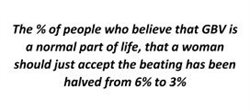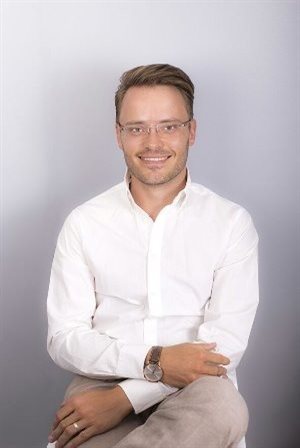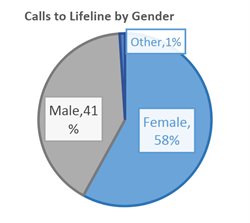How Africa's biggest beer brand, Carling Black Label, has used positive masculine positioning to address GBV since 2017 with its award-winning #NoExcuse programme.
The ‘shadow pandemic’ and fatherlessness
As various governments across the globe started implementing lockdown on their citizens to curb the spread of Covid-19, disturbing reports of a drastic increase in the incidence of gender-based violence emerged. This became such a widespread phenomenon that the UN started calling violence against women and girls: The shadow pandemic.
South Africa has a notoriously high incidence of GBV with femicide five times higher than the global average, numerous studies have shown the correlation between substance abuse and violence so any initiative aiming to address GBV without including the role of alcohol would be incomplete. We also believe that a contributing factor to both the relatively high male percentage of heavy episodic drinking, 70.8% in men who drink aged 15 and up, and violence against women is the high rate of fatherless families in South Africa with 62.9% of children under the age of 18 living without their biological father. A further complication is that a large proportion of South Africans live in homes where the close proximity does not allow for privacy or reprieve. The challenge as we saw it was to develop a way to help both victims of GBV and men at risk of being a danger to themselves and others in a context where there is no freedom of movement and were making a phone call without being overheard was unlikely.
As predicted, the introduction of lockdown led to increased calls to the telephonic counselling service offered by LifeLine with the number of calls going
up by a factor of nine from an average of 265 calls per day over January and February to an average of 2,333 calls per day from the start of lockdown on 27 March to the end of April. Month on month from March to April, the number of calls went up by 500% from 12,000 in March to 79,000 in April. Counselling is the main reason for people calling, making up 84% of the calls received with requests for information making up the balance. The calls are mostly from women but 41% are from men, so the need for an understanding ear is not by any measure a female phenomenon. This also makes a strong case that any intervention on GBV must include men to be successful and is a key reason why #NoExcuse sponsors the LifeLine service.
#NoExcuse for abuse and the results of meaningful marketing
Carling Black Label’s role is to be a lighthouse for positive masculinity that motivates and rewards men for being champions in their communities. As the biggest beer brand in Africa, we believe that we have a responsibility to be part of the solution by promoting, inspiring and enabling positive masculinity. Since the launch of the #NoExcuse movement in 2017, we have actively created awareness of the scourge that is GBV and have provided men with positive examples and access to mentors in their communities. This is not a task to be undertaken alone and we partnered with civil society through

Takuwani Riime that represents the Men’s Movement. This partnership has been instrumental in the success and continued support for the initiative from the government. The results gathered in a series of internally commissioned research studies has been very encouraging; the number of people saying they would turn a blind eye to abuse as gone from 23% to 15% over the period, 9/10 men are now also more likely to call out a perpetrator up from 7/10 at the start of the initiative. The change can even be seen on a deeper level with the percentage of people who believe that GBV is a normal part of life, that a woman should just accept the beating, being halved from 6% to 3%.
The impact on brand perception is a tale of two extremes with the unprompted association of #NoExcuse to Carling Black Label remaining relatively low at 36% but of those who make the connection, 88% say that #NoExcuse improves their perception of Carling as a brand with no reports of a negative impact to brand perception (neutral = 12%). The positive externality of the campaign also impacts the corporate brand with South African Breweries (SAB) having an 82% improvement of perception with those who know that Carling Black Label is a SAB brand. Interestingly, the unprompted association above has doubled from the initial 18% reported at launch, so my advice to anyone getting into this space is to do so with a long-term commitment in mind. I would advise a minimum of at least five years with consistent planned activity throughout each of those years. A specific call-out is that activity should not be limited to only times when there is a social media outcry. The cause has to be important enough to keep working on, even when no-one is watching.
The bravest thing – reaching out for help
Using this heritage and drawing on our partnerships with the NGOs Father-A-Nation and LifeLine to provide male mentorship and counselling respectively, we decided to provide a silent channel for those seeking help during the lockdown. This was achieved by creating an automated WhatsApp line that guides people who are reaching out, to the right organisations. By sending the word ‘brave’ to 0800 150 150 you will be guided to one of three outcomes, being contacted by a mentor from Father-A-Nation free of charge, being put in touch with a counsellor from LifeLine or routed to an AI bot called rAInbow that will help you get more information about GBV. The solution also provides a link to a video series from the founder of Father-A-Nation, Craig Wilkinson, who goes into detail on what it means to live by the virtues of a champion man.
The appeal of innovation has far outstripped our expectations. We initially forecast a figure of 500 people reaching out in the first week. This would equal the number of first-time callers to LifeLine in an average week. We received over 5,000 engagements in the first week. The functionality that WhatsApp offers and the behaviour of the men reaching out have also led to a number of unforeseen positive outcomes. Through WhatsApp people can share their GPS location and pictures which makes responding to an incident of GBV and keeping a record of the impact possible where it was a lot more complicated before. The model of mentorship envisioned at the start of the programme was of a mentor corresponding one-on-one with men who need help, we were worried that our 16 mentors were going to run out of capacity if the demand really took off. Little did we know that the mentors and the men would start forming their own organic WhatsApp groups where the men looking for mentorship were in fact starting to mentor each other. From their interactions with the >2,000 men, the mentors have formed more than 30 groups called Bands of Brothers. These groups communicate daily to encourage, support and just chat about life. This organic movement has the potential of scaling exponentially and of becoming an outstanding platform to share information and to galvanise action.
Amplification, awareness and results

Arne Rust - Carling Black Label brand director
The awareness drive for the Bravest Thing WhatsApp line launched on 1 May 2020 with the release of a video calling attention to the problem of GBV and telling people that help is a text message away. Getting the topic to the trend was largely dependent on using influencers who have been part of the campaign and speak authentically and credibly on the topic. We worked with the likes of Thomas Mlambo, Dr Musa Mthombeni, Andile Ncube, Mo Flava and Phumudzo Manenzhe who all have established relationships with the brand because of our involvement in local football. Outside of social media, the two key drivers of awareness for anyone thinking of launching a social responsibility campaign in South Africa are TV and PR. Most of the callers to LifeLine knew of the service through TV (41%) and the value of a good PR strategy and execution is exposure on radio and news with the right message to support the campaign. I would venture to say that without a good PR campaign any social initiative will never achieve broad-based awareness. So with less than $200,000, we were able to reach more than 30 million people, get help to more than 8,000 people, and positively impact the equity of the brand.
The key elements in my opinion are:
- A deep tension that aligns with your brand. In the case of Carling Black Label, a masculine beer brand addressing GBV
- Long-term partnerships with NGOs, civil society organisations, government, influential people and your consumers to show you’re not opportunistic and are committed to being part of the change
- Giving your agencies the freedom to proactively propose ideas and programmes
- Having the grit to stick with a polarising and uncomfortable subject because you believe it is the right thing to do












































